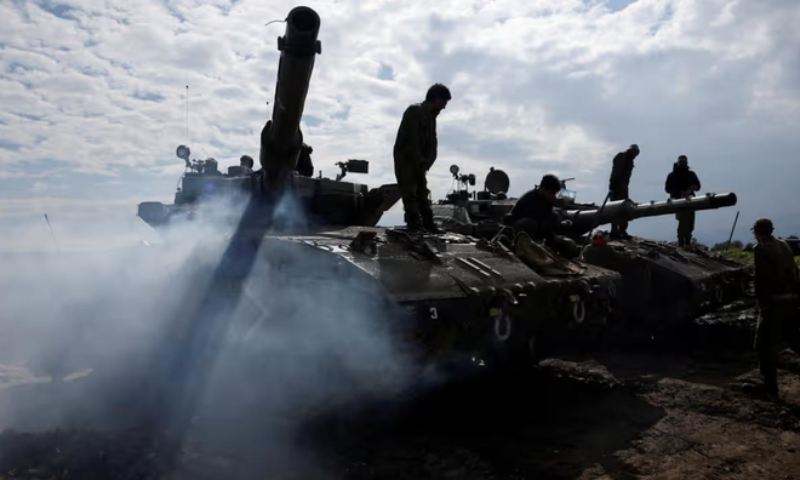LONDON, England: The United Kingdom’s approval of arms export licenses to Israel saw a drastic decline following the eruption of the conflict in Gaza, with permits for military equipment sales plummeting by over 95 percent to a 13-year low.
Data sourced from government officials and the Department for Business and Trade’s Export Control unit reveals a significant drop in the value of approved licenses from October 7 to December 31 last year. During this period, the value of permits granted for military sales to Israel amounted to £859,381 ($1.09 million), marking the lowest figure since 2010. This contrasts sharply with the £20 million in arms sales approved for the same period in 2022, indicating a substantial reduction in the UK’s arms exports to Israel.
While the United States and Germany increased arms sales to Israel following the commencement of the Gaza conflict, the UK opted for a different approach, significantly curtailing its arms exports. Notably, the UK government does not directly supply arms to Israel but issues licenses for companies to conduct weapon sales, subject to compliance with international law.
The decline in approved licenses raises questions about the UK’s stance on arms sales amid ongoing conflicts. Many of the licenses approved post-Gaza conflict were for items categorized as “commercial use” or non-lethal items such as body armor and military helmets. The exact reasons behind the reduction in approved licenses remain unclear, with possible factors including governmental restrictions or diminished demand from Israel.
Criticism has arisen from members of the UK Parliament and human rights groups regarding the lack of transparency surrounding arms sales to Israel. Countries like Italy, Canada, and the Netherlands have imposed restrictions on arms exports to Israel due to concerns about potential misuse of the weapons. However, UK Prime Minister Rishi Sunak has maintained support for Israel’s right to defend itself against Hamas, resisting calls to halt arms transfers while emphasizing adherence to a meticulous licensing regime.
The UK government’s forthcoming disclosure of arms sales information to Israel in the first half of this year is awaited with interest. Past instances, such as the revocation of licenses in 2009 and formal restrictions in 1982 following the Lebanon invasion, underscore the complex dynamics surrounding arms exports in conflict zones.























